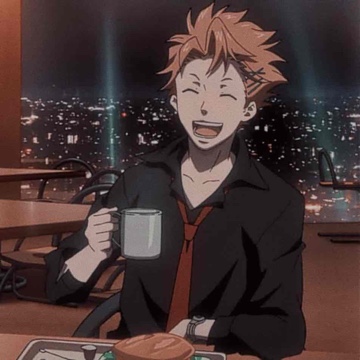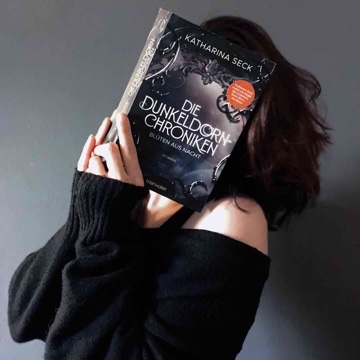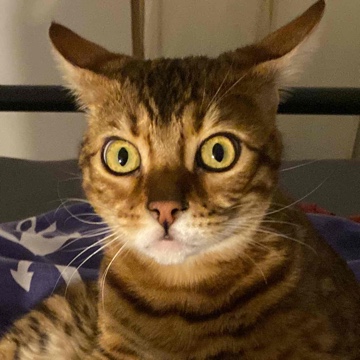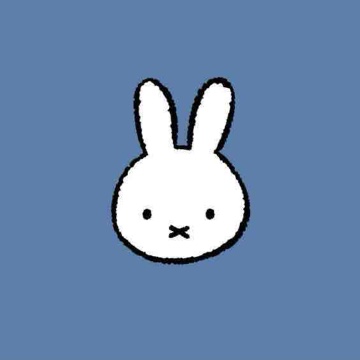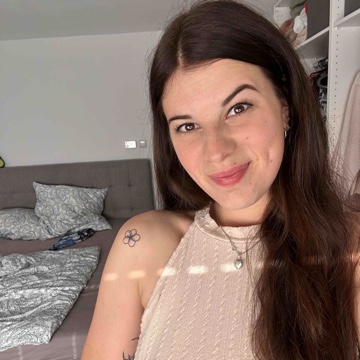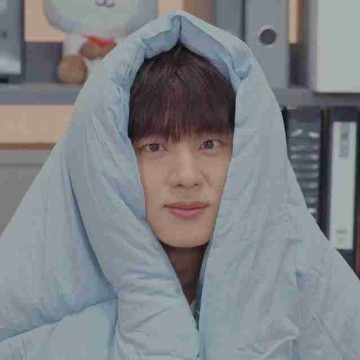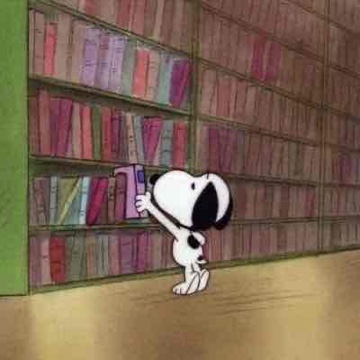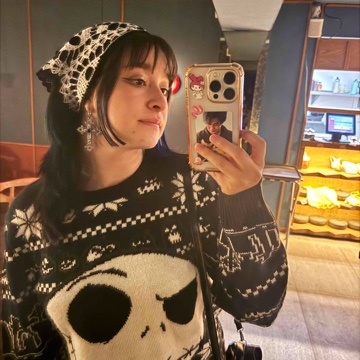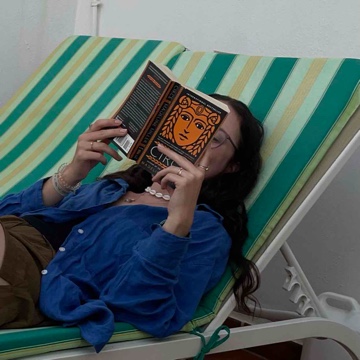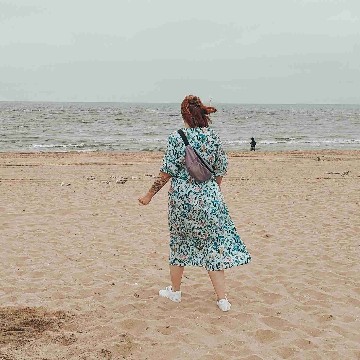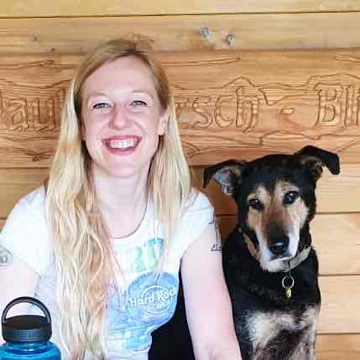Der Roman ist in drei Teilen aufgeteilt und leider hat der zweite, für mich das ganze Buch versaut. Es war mir einfach zu verstörend und abgedreht. Den Sinn dahinter hab ich nicht ganz verstanden weil vor allem der Erzähler das Geschehen sehr neutral wiedergegeben hat. Mir hat aber gefallen, dass das Buch aus drei unterschiedlichen Perspektiven erzählt wurde, die mit der Protagonistin verwandt waren. Ich denke, dass es auch nicht wirklich um ihre Leidensgeschichte sondern eher um die Erkenntnisse der drei Figuren, die sie dadurch erlangten geht. Besonders die Entwicklung ihrer Schwester hat mir gefallen aber der Teil, der sie behandelt, konnte den vorherigen schlimmen zweiten Teil nicht aufwerten.
i can't believe some people picked this one up expecting a comfort-read?!
it definitely isn't, but it is a very interesting and important one. expect to be in anything but comfort while reading.
Message klar, aber zu langwierig
Das Buch ist sehr schön geschrieben, viele Beschreibungen. Leider ist es aber auch sehr langwierig. In drei Teilen wird eine unterschiedliche Perspektive anhand von verschiedenen Personen beschrieben, nur nicht von der eigentlichen Protagonistin. Es wird schnell klar, dass es eine Kritik an das Patriarchat in Südkorea ist, jedoch finde ich vor allem den zweiten Abschnitt mit dem sexuellen Inhalt zu überzogen und schließlich auch das Ende offen. Insgesamt 2,5 ⭐️
Ja also. Was war das??? Nach den ersten beiden Akten war ich ready das Buch fallen zu lassen weil ich wirklich einfach angewidert war. Die permanente Objektifizierung der Protagonistin war teilweise unerträglich und ich sehe auch immer noch nicht, warum das sein musste. Es steckt vermutlich ein tieferer Sinn dahinter aber das ändert nichts daran, dass es einfach zu doll war. Der dritte Akt hat mich dann schon mehr abgeholt. Ich fand vieles sehr relatable und zum ersten Mal hatte ich auch das Gefühl, eine tiefere Verbindung zu den Charakteren aufbauen zu können. Die body horror Aspekte waren ganz okay, ich hab da teilweise echt schon dolle Probleme mit, kam aber gut damit zurecht da es jetzt nicht zu graphic war. All in all ist es glaube ich einfach nicht wirklich mein cup of tea aber damit habe ich auch schon ein wenig gerechnet.
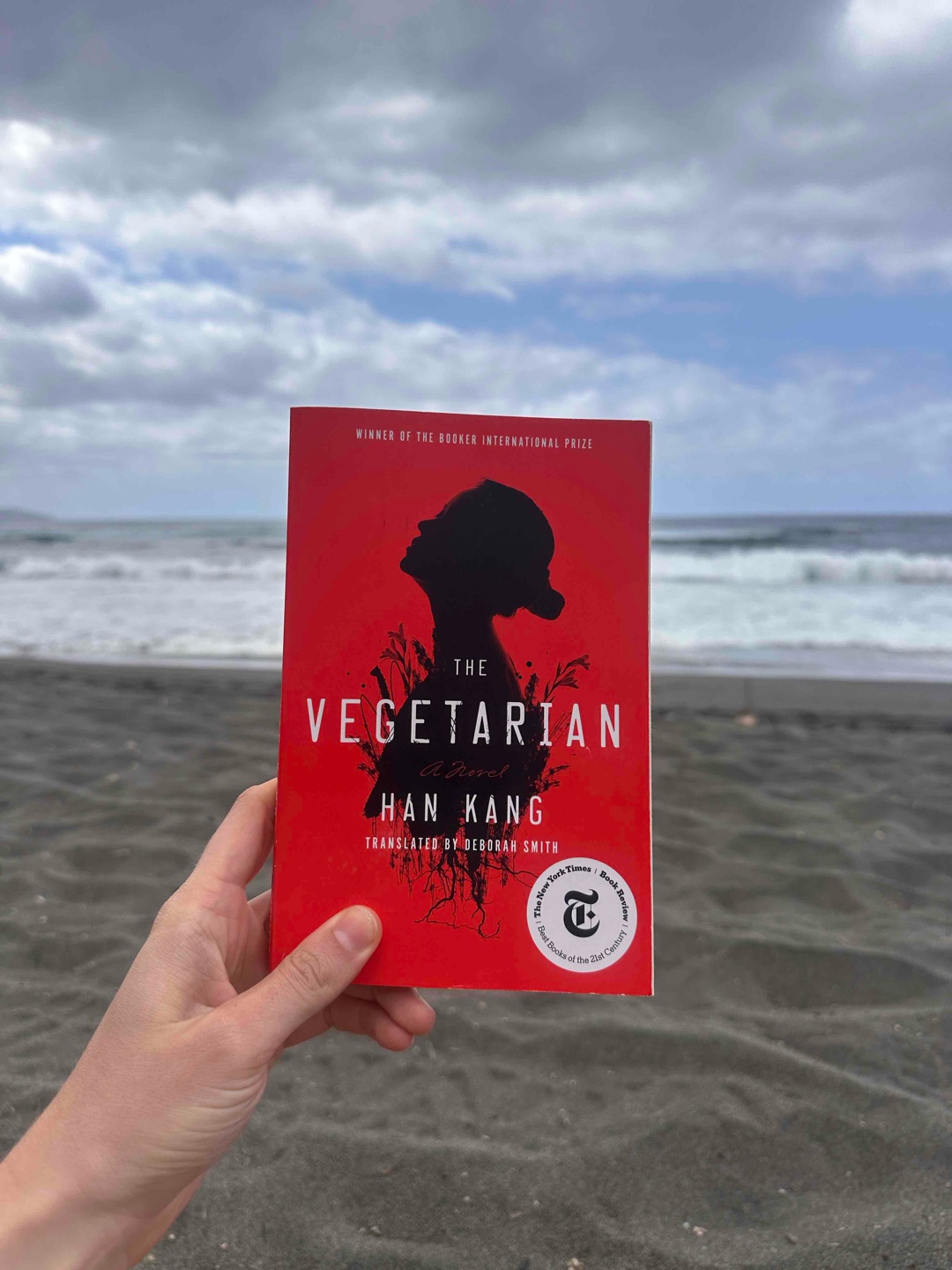
👀 seltsam verstörendes Meisterwerk, das mich sprachlos zurücklässt
Worum geht’s? The Vegetarian ist ein düsteres, intensives Buch, das in drei Teile untergliedert ist – jeweils aus der Perspektive einer anderen Person in Yong-Hyes Umfeld: ihrem Ehemann, ihrem Schwager und ihrer Schwester. Über mehrere Jahre hinweg wird erzählt, wie Yong-Hye nach einem brutalen Albtraum beschließt, kein Fleisch mehr zu essen. Was scheinbar als radikaler Vegetarismus beginnt, entfaltet sich zunehmend als Tiefenstudie psychischer Instabilität, Selbstbestimmung, Essstörung und Traumabewältigung. Die Gesellschaft und Familie reagieren mit Unverständnis, Gewalt und Manipulation, während Yong-Hye sich immer weiter von der Welt entfernt – in der Hoffnung, nicht länger Mensch zu sein, sondern eins mit der Natur, ein pflanzenähnliches Wesen. Triggerwarnung Das Buch enthält explizite Darstellungen von sexueller Gewalt, häuslicher Gewalt und psychischer Krankheit. Charakterentwicklung Yong-Hye wird zu Beginn als eine völlig durchschnittliche, stille Frau beschrieben – unscheinbar, anspruchslos, nahezu unsichtbar. Nach dem Ausbruch ihres „Vegetarismus“ verändert sie sich jedoch drastisch: Sie wird körperlich immer schwächer, verweigert zunehmend Nahrung und zieht sich emotional völlig zurück. Diagnosen wie Magersucht und Schizophrenie fallen. Ihre tiefe Sehnsucht, zu einer Pflanze zu werden – mit Wurzeln im Boden und Blättern statt Händen – wird zu einer Metapher für ihren inneren Ausbruch und ihr Bedürfnis nach absoluter Flucht aus einer Welt, die sie nie verstanden oder respektiert hat. Yong-Hye entwickelt sich dabei paradox: äußerlich wird sie schwächer, innerlich radikaler und kompromissloser. Gänsehautmoment & Lieblingszitat „She thrust her glittering golden breasts over the veranda railing. Her legs were covered with scattered orange petals, and she spread them wide as though she wanted to make love to the sunlight, to the wind.“ Diese Szene war ein absoluter Gänsehautmoment für mich – kraftvoll, poetisch und gleichzeitig tief verstörend. Sie symbolisiert Yong-Hyes Wunsch nach vollständiger Verschmelzung mit der Natur und dem Verlassen ihrer menschlichen Existenz. Lesefeeling Was The Vegetarian für mich besonders gemacht hat, war die Entscheidung, Yong-Hyes Geschichte nie aus ihrer eigenen Perspektive zu erzählen. Dadurch bleibt sie eine Projektionsfläche für die Ängste, Wünsche und Urteile der Menschen um sie herum – der Leser wird wie die Figuren außen vor gehalten und spürt dadurch ihre Isolation umso intensiver. • Teil 1 hat mich unglaublich wütend gemacht: zu sehen, wie die Familie mit Gewalt und Zwang auf ihr Verhalten reagiert. • Teil 2 war einfach widerlich und verstörend – ich hatte anfangs keine Ahnung, wie sehr sich die Handlung noch zuspitzen würde. • Teil 3 ließ mich sprachlos zurück: traurig, beklemmend und doch faszinierend. The Vegetarian ist kein Buch, das man „wegliest“. Es ist ein Buch, bei dem man immer wieder innehalten muss – überwältigend und intensiv. Fazit The Vegetarian ist ein seltsam verstörendes Meisterwerk, das mich sprachlos, verwirrt, aber auch tief beeindruckt zurückgelassen hat. Der Stil ist manchmal etwas wirr und fragmentarisch, was den Zugang erschweren kann. Besonders herausfordernd fand ich, dass man über Yong-Hye fast ausschließlich durch die Interpretationen anderer erfährt und nie direkt in ihre Gedankenwelt eintauchen kann. Dennoch: Die gesellschaftliche Kritik, die psychologische Tiefe und die literarische Qualität dieses Buches sind unbestreitbar. 3/5 Sterne – ein Buch, das man nicht vergisst, auch wenn es einen an seine emotionalen Grenzen bringt. 🌿
Musste ich erstmal verdauen.
Zugegeben, direkt nach dem Lesen war ich ein bisschen enttäuscht, habe mich jedoch dazu entschieden, die Geschichte erst einmal sacken zu lassen und ein paar Tage darüber nachzudenken. Vermutlich werde ich das Buch gegen Ende das Jahres auch noch einmal in die Hand nehmen. So im Nachhinein hat das Buch zumindest dazu geführt, intensiver darüber nachzudenken, statt es nach dem Lesen einfach nur auf meinen Leseapps als "gelesen" zu markieren und wieder ins Regal zu stellen. Es geht um Rebellion und (weibliche) Selbstbestimmung. Um Identitätsverlust und patriarchal geprägte Beziehungen und Erotik. Und um die Autonomie über den eigenen Körper.
Habe mir mehr erhofft von der Geschichte. Die verblieb dann doch etwas inkonkret. 3 Sterne gibt es für die interessanten Perspektiven auf die Protagonistin.
Rating = 1,67 1. Storyline: 2/5 2. Character: 1/5 3. Plottwist: -/5 4. Writing: 2/5
Wow.
Das war wirklich nicht leicht zu lesen. Das einzige was ich nicht perfekt fand waren die Parts wo ich das Gefühl hatte ich verstehe nicht was damit gesagt werden soll.
Verstörend und verwirrend, aber ein interessanter Spiegel der Gesellschaft. Dennoch nicht meins
Potential spoilers ahead? It took me quite some time to understand, that it does not necessarily evolve around vegetarian lifestyle. Once we get to the last act, my heart breaks more and more for yeong-hye. As the novel progresses her (bodily) autonomy gets taken away with each passing page, which is the worst thing I could imagine for me. Besides that, the book talks a lot about (childhood) trauma, body image struggles, (sexual) assault, misogyny -especially coming from Yeong-Hyes husband- and other hard to digest topics. Even though it is a quite short novel, it isn’t really an easy read. Nevertheless I cant wait to read more of Han Kang’s novels.
Uno de los libros más raros que he leído. Es como una de esas películas que no entiendes que está pasando pero sientes que hay algún concepto más al fondo Impresionante la actitud de los personajes, siento que es más una reflexión de la libertad de expresión de una persona y como nuestros conocidos y seres queridos reprimen esas decisiones bajo sus propios conceptos de lo que "es correcto", un personaje principal muy vulnerable (tanto que nisiquiera se puede leer la historia desde su punto de vista, siempre es como los demás la veían pero nunca como ella se sentia) No es el mejor libro que he leído pero si uno muy interesante. No se si lo volvería a leer tal vez después lo entienda diferente.
Ganz anders als ich erwartete habe… Ich weiß nicht ganz was ich davon halten soll. Muss erstmal drüber nachdenken. Ps: die Autorin hat einfach während ich dieses Buch gelesen hab den Nobelpreis für Literatur gewonnen!
The novel is divided into three parts, each of them from a different POV and about their perception of 'the vegetarian', a woman who, after a dream, renounces meat and other animal produce. Before, the woman was trapped in an unfulfilling life and society's expectations. However, she decides to forego eating meat altogether, thus breaking one of society's norms and leaving the people around her baffled. What, at first, can be seen as an act of self-liberation quickly becomes the main character's, as well as her family's, downfall and breaking point. Instead of supporting her, her family tries to force her back into a carnivores diet, taking away the last bit of her autonomy, thus further restricting her and driving her into 'madness'. This story explores sexism, societal norms, misperception of each other, and much, much more. A very interesting read that can be a bit hard to digest and leaves you questioning everything, but especially the society we live in.
Ein Buch, bei dem ich nicht weiß, was ich davon halten soll. Es ist auf jeden Fall etwas anderes. Das Buch besteht aus drei Teilen, die unterschiedliche Perspektiven zeigen, sich aber immer um Yeong-hye drehen. Im ersten Teil beschreibt Yeong-hyes Ehemann, wie seine Ehefrau von einem Tag auf den anderen beschließt, kein Fleisch mehr zu essen. Unerhört. Der plötzliche Vegetarismus löst etwas in dieser Familie aus, was auch schon vorher da, aber nun an die Oberfläche tritt. Im zweiten Teil kommt ihr Schwager zu Wort und der dritte Teil ist aus Sicht der Schwester geschrieben. Es geht nicht um die vegetarische Ernährung an sich, sondern vielmehr um Depressionen, psychische Gesundheit, Familien und soziale Erwartetungen. Vielleicht müsste man das Buch ein weiteres Mal lesen. Nun weiß man als Leserin wie es weitergeht und würde sicherlich manche Dinge anders deuten.
* 2,5 I liked the themes and the writing, but somehow I didn't like the 'execution' of the plot and the ending. Overall it was a bit messy and cold.
This was a very unusual and special book, not only the first South Korean book I've ever read but also in many other ways: the way the story is told (we switch from one family member to another), the portrait of the characters (we get a very deep insight into their twisted thoughts) and the story itself (we follow a family on their way to total destruction, starting off with a dream the lives of all the family members will change and not to the better, dark sexual desire, schizophrenia, scandals, depression, repression and resistance are accompanying them at all times)
CW: sexual violence and rape, domestic violence, suicide, mental illness, abuse, sexualization (what’s new) I do wish I had done more research before I dived into this book. I had read a few reviews but most just said it was a weird book and in general the reviews were very mixed. Me being a vegetarian AND a lover of weird books just thought: well, lets get started. And yes: I do really appreciate this book and I am glad that I read it - I just wish I would have been prepared for the reality of this story. This book dealt with a lot of heavy issues (see content warnings) and did so from a very strange point of view/perspective. The book is separated into three parts, each having a different narrator and all of them are connected to „the vegetarian“ a woman who stops eating animal products - but who really represents so much more than one can gather from the synopsis. The writing style seems very detached from the story and is not very emotional, talking about a lot of unnecessary details and letting us experience what the narrator things and feels about Yeong-Hye (the vegetarian). Most of those thoughts and feels were hard to digest. Yeong-Hye suffers from her abusive and sexist husband, her completely insensitive family and an obviously unfulfilling life. All she does is basically take care of her husband who goes completely nuts when she stops eating meat and also stops preparing meat for him. As the synopsis tells us she stops wearing bras as well and changes a lot of other stuff in her life. At first it really just seems like a lifestyle change but after a few pages the reader realizes that there is more going on than that. The more we read the more we realize that in reality Yeong-Hye’s years of suffering have led her into mental illness and giving up the will to live. This book left me disturbed, horrified and just very sad. It painted a very harsh picture of being a women, a mother, a daughter and a human with mental illness in the society we live in. A reminder about all the things we still need to change.
What an odd story....I connected with some moments though fleeting. Can't say I enjoyed it.
I just didn’t really get the point of this book? I mean yeah, it’s about a woman who refuses to continue living her life as society expects from her, but other than that it was just too much and missed the point in my opinion
The first two parts were really fascinating, but I got really confused with the third part.
Clearly even the time frame it's taken me to read this book is a big indicator to how much of a struggle it was. I was confused by the entire book and I still don't know what the point of it was. The main character is a vegetarian and then goes on to have sex with her sister's husband both after being committed once and then committed the second time. I'm still struggling to see the point. I've DNF'd a few books in the last two weeks and didn't want to do that to this without giving it 100%. Yes there were like 1 or 2 pages near the end where I thought the book was going to turn out to be a 4 ⭐️ read but noooooo I was very wrong!! To be honest the 2 ⭐️ is probably for that one page when some action happened in the psych ward where the main character was being held. There is no explanation of what happened with the husband after the incident with the sister. There is no real direction with the story and the ending was soooo lackluster. Basically the last sentence ended with me have a wtf moment.
This novel made me really uncomfortable. I’m not saying it’s bad or badly written. I quite liked the sparse language and the weird premise. You won’t be surprised if I tell you that this is not a book about vegetarianism. It’s about a woman who decides to no longer eat meat because of a dream she had. She does so in a society where eating meat is not only the cultural norm but the only choice. It’s also a novel about the way we perceive the people close to us and how we often claim to know their innermost motivations and beliefs – their true selves. What I really liked about “The Vegetarian” is how the aforementioned decision and its consequences are described by three different narrators giving the reader three different versions of the protagonist and her motives. The way the representation of the eponymous vegetarian changes according to each narrator (her husband, her brother-in-law, her sister) makes it clear that the notion we have of the people we love is not always true. Now what’s the uncomfortable part? I can hardly put a finger on it, and maybe it’s the translation or that I personally lack the cultural context. But a lot of the scenes made me cringe. Most of all Han Kang’s descriptions of the physical. The way she writes sex scenes reminded me a lot of Murakami (close focus on genitalia or nipple). The more I think about this, the more I believe that this was done on purpose. Anything to do with the body (the flesh, so to speak) is supposed to be disgusting and not appealing – even through the eyes of the meat-eating narrators. So it’s probably a good thing that I reacted the way I did. I stick with my three star rating, though because I still thought that whole plot fell a bit flat. Even though this is a fairly short novel I think it would’ve worked better as a short story.
